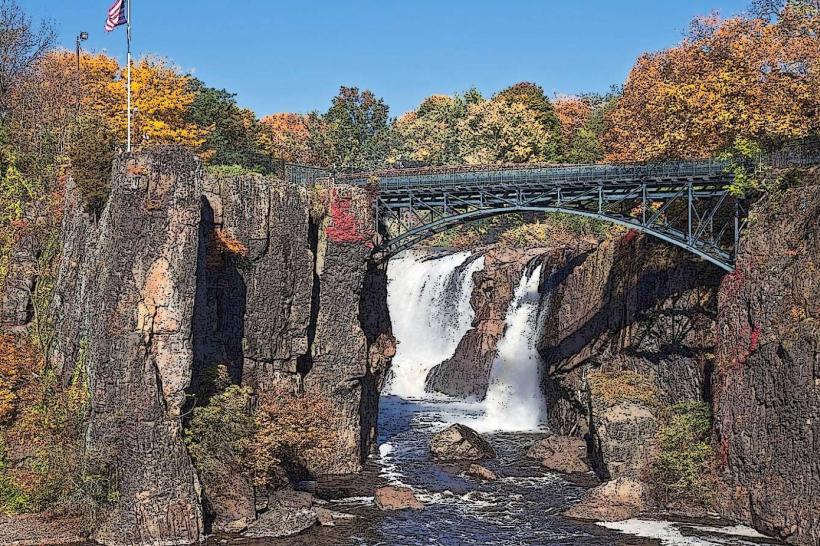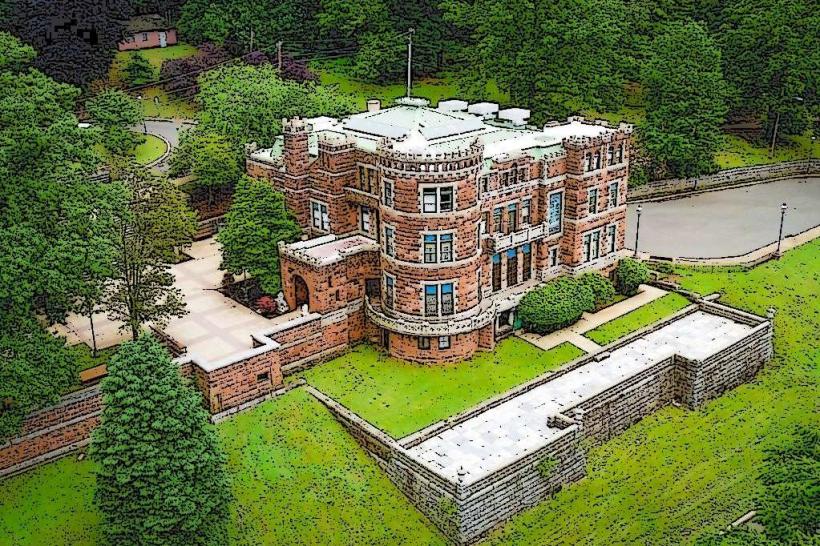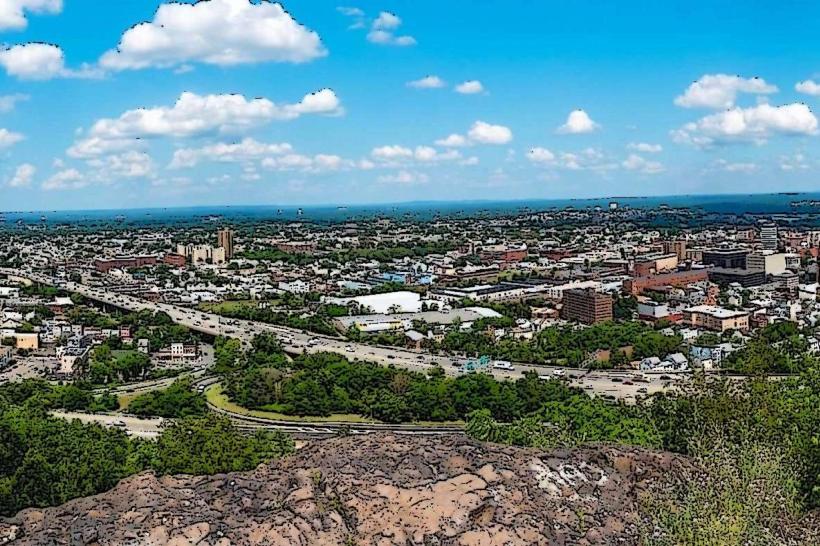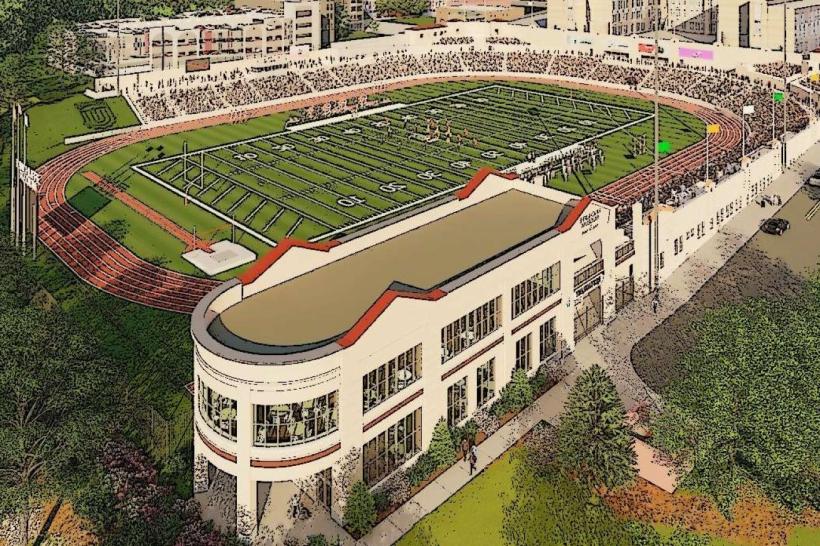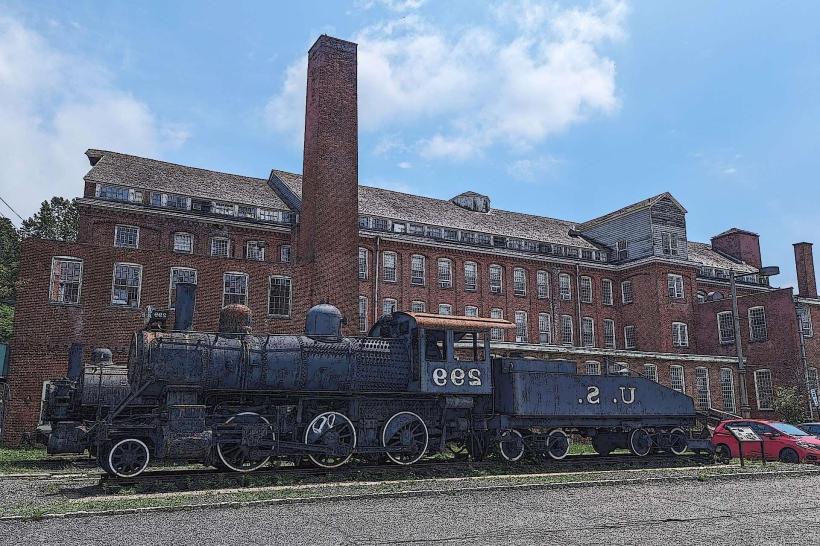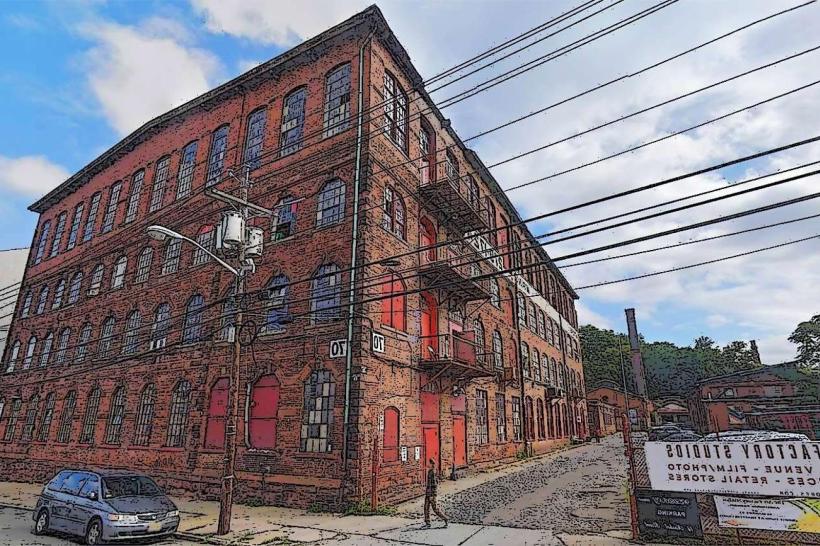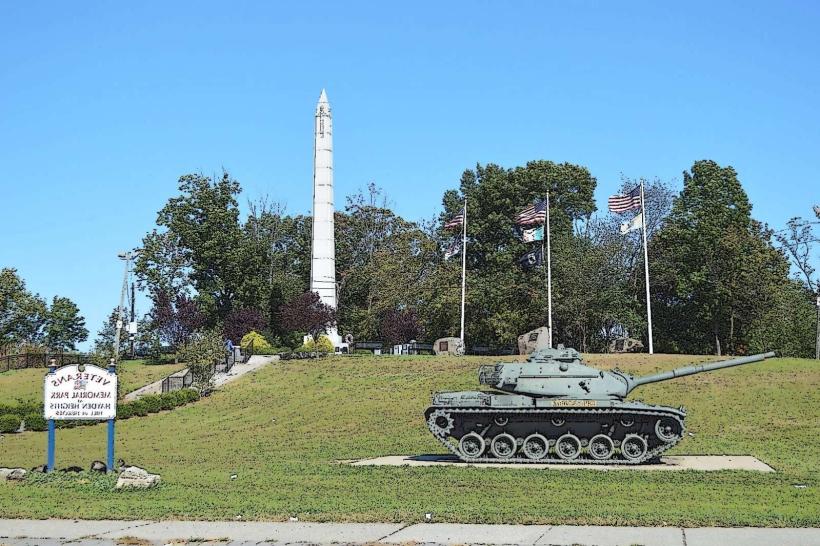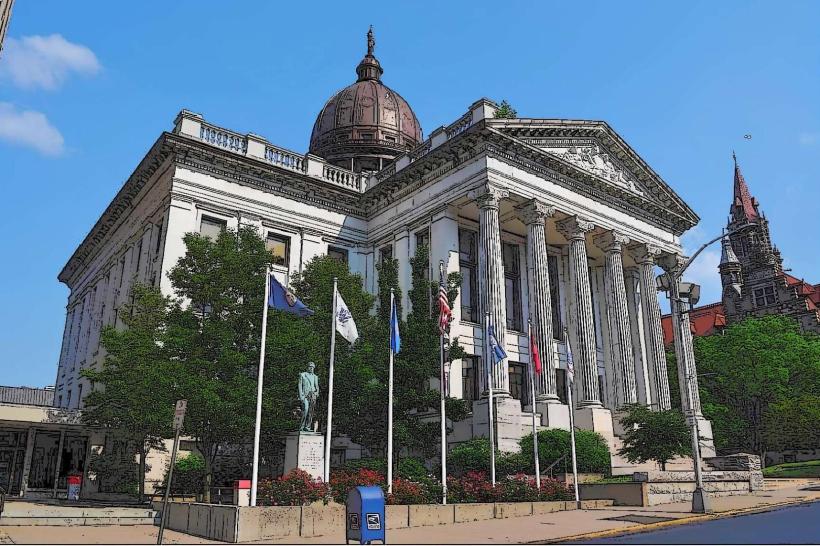Information
Landmark: Eastside ParkCity: Paterson
Country: USA New Jersey
Continent: North America
Eastside Park, Paterson, USA New Jersey, North America
Eastside Park in Paterson, New Jersey, is a historically and culturally significant urban park that stands as a prime example of late 19th- and early 20th-century park design, deeply rooted in the City Beautiful movement. Covering approximately 66 acres, it is not only a green space for recreation but also a landmark that reflects the city’s heritage, architectural sophistication, and community values.
Historical Context and Origins
Eastside Park’s origins date back to the post-Civil War era. The land was initially owned by Colonel Andrew Derrom, a prominent Civil War veteran and local industrialist who, between 1868 and 1872, acquired the undeveloped tract on Paterson’s east side. In 1880, Derrom built a mansion and a clubhouse on this property, which would later become the nucleus of the park. Recognizing the need for public recreational spaces in an expanding urban environment, Paterson city leaders, in 1881, purchased Derrom’s estate for $75,000 with the vision of creating a municipal park.
The formal landscape design was entrusted in 1899 to John Y. Culyer, an accomplished landscape architect who had previously worked alongside Frederick Law Olmsted, the famed designer of Central Park and Prospect Park. Culyer’s plan for Eastside Park embraced the principles of the City Beautiful movement, which aimed to beautify cities with thoughtfully designed parks, boulevards, and civic monuments, fostering civic pride and social harmony.
The establishment of Eastside Park was a catalyst for the development of the surrounding neighborhood. Wealthy Paterson residents were drawn to the area by the park’s beauty and amenities, resulting in the construction of over 500 residential buildings by 1915. This neighborhood, known as the Eastside Park Historic District, is recognized on the National Register of Historic Places, reflecting the architectural and historical significance of the homes and public spaces around the park.
Landscape and Design Features
The park’s design balances naturalistic landscaping with formal architectural elements. Culyer’s vision included sweeping lawns, curved pathways, water features, and groves of trees arranged to create a serene and picturesque environment within the urban setting. The landscape promotes relaxation, social gatherings, and passive recreation such as strolling and picnicking.
Eastside Park’s layout reflects early park design philosophies that emphasized accessibility, beauty, and social utility. The pathways are designed to encourage leisurely walks while providing access to key points of interest, including monuments, bandstands, and playgrounds. The park’s greenery includes a variety of native and ornamental trees, shrubs, and flower beds that change with the seasons, enhancing the visitor experience throughout the year.
Architectural Monuments and Structures
Eastside Park contains several notable monuments and historic structures, each adding layers of meaning and artistry:
Alice Weight Memorial Fountain (1916): This Italian Renaissance-inspired fountain serves as a focal point within the park. The fountain features a large shell-shaped basin supported by an elaborately decorated pedestal with baroque motifs and foliate details. It honors Alice Weight, a local philanthropist, and contributes an artistic and commemorative dimension to the park.
Charles Curie Monument (1913): A bronze bust mounted on a neo-classical granite pedestal, this monument commemorates Charles Curie, a Paterson native and Civil War captain. The statue honors local military heritage and reflects early 20th-century memorial styles.
Civil War Monument (1922): Designed by sculptor Gaetano Federici, this monument is a striking Egyptian Revival obelisk resting on a Classical Revival base. It is topped by a statue of a Union soldier and includes bronze plaques depicting significant battles and honoring veterans. This monument reflects the national trend of commemorating Civil War service and sacrifice in public spaces.
Van Buren House: Predating the park, this Greek Revival farmhouse from the 1860s was incorporated into the park grounds. It served variously as the residence for the Park Superintendent and as office space for the city’s Parks and Recreation Department, linking the park’s administration to its historical roots.
Victorian Bandstand: A centerpiece for public entertainment, the bandstand showcases Arts and Crafts design influences typical of the Victorian era. It was constructed to accommodate large crowds (up to 5,000 people) for concerts and civic events, illustrating the park’s role as a social and cultural gathering place.
Women’s Comfort Station (1892): This facility was an early example of public amenities designed with women and families in mind, providing restrooms and shelter, and highlighting progressive approaches to public park accessibility and safety.
Community Role and Activities
Eastside Park has remained a vital community hub over its long history. It supports a wide range of recreational activities and events that foster social interaction and community engagement:
Sports and Recreation: The park includes baseball fields, playgrounds, walking paths, and open lawns for informal sports and exercise, serving residents of all ages.
Cultural and Social Events: Annual events such as the Paterson Greek Masonic Community Cookout and Family Day are hosted here, along with summer baseball leagues like the EHS Larry Doby Summer League, which honors the legacy of the famed African American baseball pioneer from Paterson.
Community Involvement: The Eastside Neighborhood Association and other local groups actively participate in park maintenance, clean-up days, guided tours, and advocacy, ensuring the park remains well cared for and responsive to community needs.
Preservation and Management
Eastside Park is managed by the City of Paterson’s Department of Parks and Recreation. Due to its historical importance and architectural significance, it is listed on both the New Jersey and National Registers of Historic Places, which helps protect the park’s heritage and guides preservation efforts.
The park’s maintenance balances preserving historic elements with modern needs, including safety improvements, landscaping upkeep, and accessibility enhancements. Restoration projects over the years have sought to maintain original design features while adapting facilities to contemporary standards.
Significance
Eastside Park is more than just an urban green space; it is a living testament to Paterson’s historical development, architectural richness, and civic aspirations. Its design reflects the ideals of the City Beautiful movement, emphasizing beauty as a means to promote social well-being and urban pride. The park’s monuments and structures tell stories of local heroes, historical events, and community values, making it a meaningful destination for residents and visitors alike.
In essence, Eastside Park embodies the intertwining of natural beauty, history, architecture, and community spirit, serving as a cherished landmark and green refuge in the heart of Paterson.

